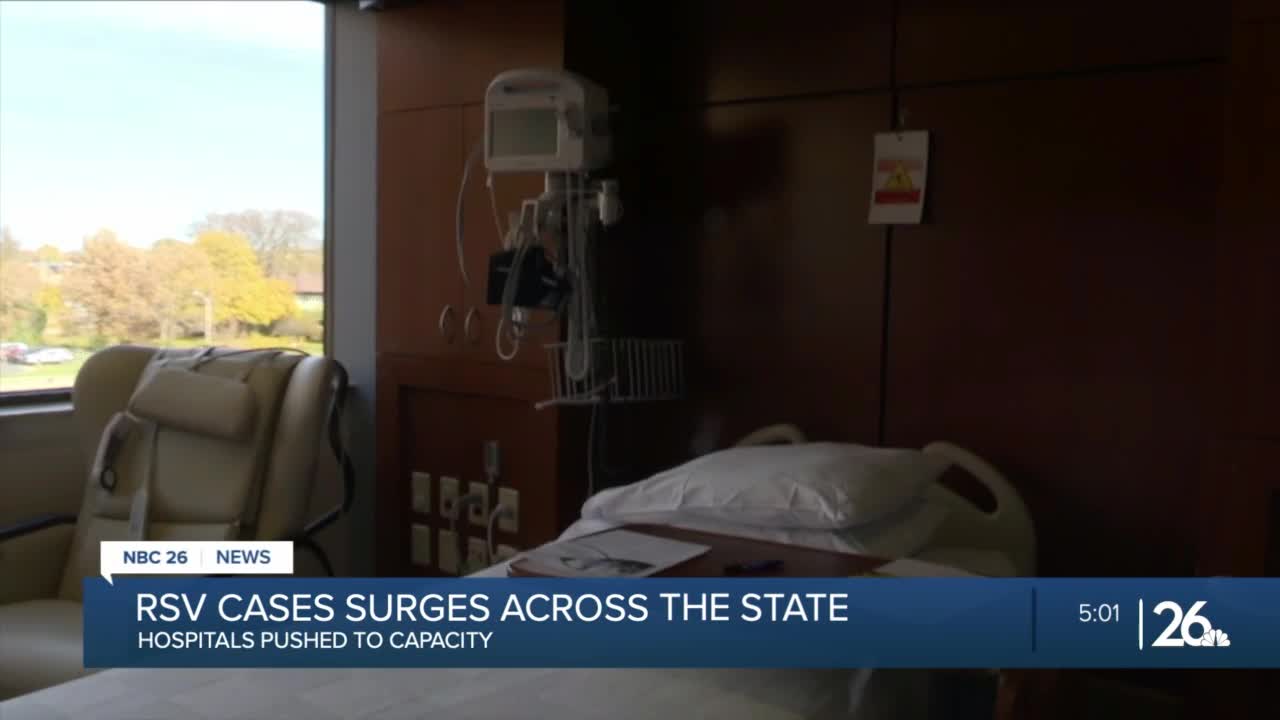FOND DU LAC — Cases of respiratory syncytial virus infection, or RSV, are spiking across Wisconsin.
Tom Haupt with the Department of Health Services said that as of last week, the state was averaging "well over" 800 cases per week.
The surge in cases is also coming earlier than in previous years, said Dr. Joshua Ross with UW Health Kids.
"We're seeing earlier peaks," Ross said. "So last year, we actually had a peak in September, that dwarfs in comparison to the peak we're experiencing right now at the end of October. Our peak is about three times higher already. And we're seeing just a lot of kids that are affected."
This surge threatens to overwhelm hospitals.
"This is the first time in my 10 years here that I've been worried about not having a bed here to be able to admit somebody, and also kids seem to be sicker with it," said Dr. Nicole Schwendel, a pediatrician with SSM Health in Fond du Lac.
Dr. Abby Smolcich, a pediatrician with Thedacare Health in Appleton, said her hospital is facing a similar problem.
"We are sort of stretched to the max as far as our available beds for our kids that need to be hospitalized," Smolcich said.
Schwendel said the infection tends to be worse for young children.
"They have smaller airways," Schwendel said. "And so one of the things that happens with RSV is it can cause a lot of mucus and other just kind of junk within the airways. And so if you're an adult, your airways are much bigger. So if you put a little bit of mucus in there, it's easier to clear, but when it's smaller even that little bit of mucus can really clog them up."
One reason for the spike could be lessening COVID-19 mitigation strategies, said Ross.
"I think we're seeing an earlier spike in RSV this year because we're no longer masked and distanced as we needed to be during the early parts of the pandemic," Ross said. "And so, understandably, kids are going to be around each other and which is good, but they're also spreading viruses."
But COVID-19 has not gone away yet, and neither has the flu, creating the possibility of hospitals becoming overwhelmed dealing with all three viruses.
“You know, as much as you might have doctors working as hard as they can, there are only so many beds, there's only so many breathing treatment machines. There's only you know, so many other you know, X-ray machines, things like that, that can easily be overwhelmed.”
Symptoms to look out for include nasal flaring, coughing, fever, difficulty breathing, or a runny nose.
Ross, Schwendel and Smolcich all said parents should be on the lookout for these symptoms, particularly if a child is struggling to breathe, and check with their primary care doctor before going to an emergency room.



